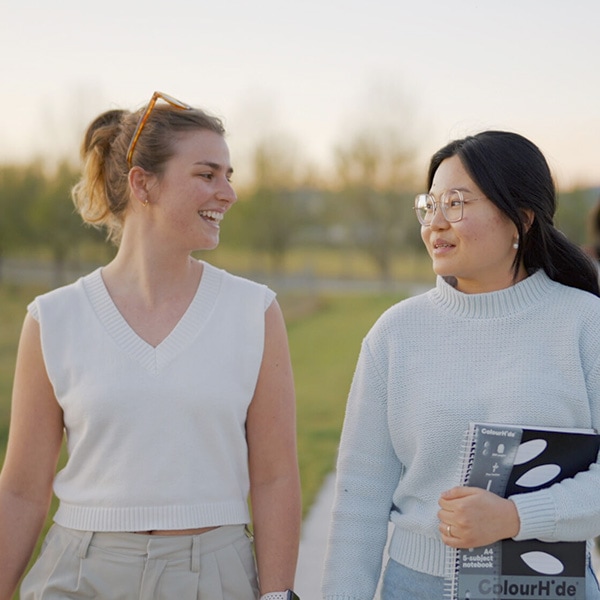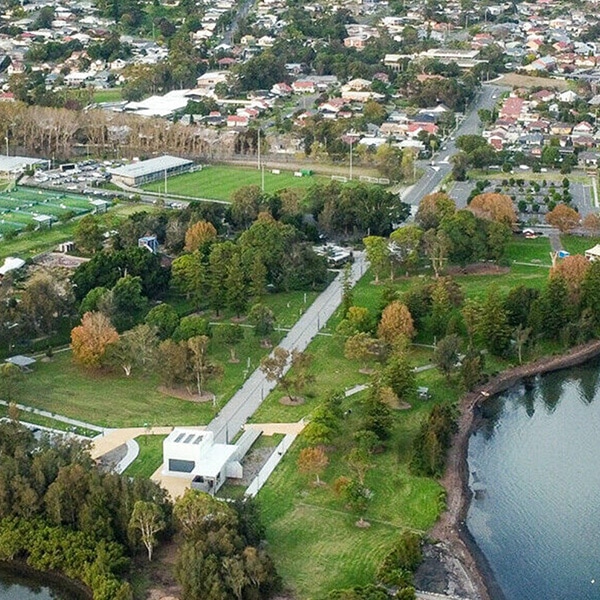If you plan to study on-campus at Avondale, you will study onshore. This section includes admissions-related information about the following requirements for studying onshore:
• CRICOS
• Genuine Temporary Entrant
• Academic and English language
• Confirmation of Enrolment
• Australian Visa
• Overseas Student Health Cover
• Visa Conditions
• Bringing your family to Australia
• Working in Australia
• Cost of living
CRICOS
CRICOS Commonwealth Register of Institutions and Courses for Overseas Students indicates a registered program offered to international students studying in Australia on student visas.
CRICOS RegisterGenuine Temporary Entrant (GTE)
We must ensure that international students intending to study at Avondale are genuine students and Genuine Temporary Entrants. To satisfy the GTE requirement, your circumstances must demonstrate that you intend to stay in Australia temporarily to gain an education.
The factors that are considered during the assessment of the GTE requirement include:
• Your personal circumstances in your home country
• Your potential circumstances in Australia
• The value of the program to your future
• Your immigration history; and
• Other matters relevant to your intention to remain in Australia temporarily.
GTE FormEntry Requirements
You will find the academic and English language entry requirements in each course page’s Admission Criteria section. Only when you meet our requirements for entry will you receive an offer of admission to Avondale. International students must be at least 18 years of age before they arrive at Avondale ahead of the relevant teaching period commencing to be eligible for enrolment at Avondale University.
An offer of admission includes:
• Course details
• Fee information
• Written Student Agreement
• Written Student Agreement Acceptance Form.
Confirmation of Enrolment
When you return the signed Written Student Agreement Acceptance Form and pay your fees, we issue you with a Confirmation of Enrolment (CoE). Your CoE will contain information about you, the course you will study, the estimated cost and the duration of your study. A CoE provides evidence that you are eligible to enrol at Avondale and have accepted your place. You will need a CoE when lodging your student visa application to study in Australia.
Apply for a visa as soon as you receive your CoE from Avondale.
Australian Visa
All international students must have a valid visa to study in Australia. Most international students who are accepted to study full-time at Avondale apply for a Student Visa (subclass 500).
Student Visa You may be able to study at Avondale if you have another type of visa. This depends on your situation.
Visa Finder The Department of Home Affairs issues Australian visas, and it can take a long time for visa applications to be processed, so make sure you apply as soon as possible. For more information about visas, contact the Department of Home Affairs or the Australian Embassy, High Commission or diplomatic mission in your country.
It’s your responsibility to apply for a visa, ensuring you receive it in time to travel to Australia and start your program.
Overseas Student Health Cover
It is a condition of your student visa to maintain Overseas Student Health Cover (OSHC) for the duration of your student visa. OSHC assists international students in meeting the costs of medical and hospital care they may need while in Australia.
Compare OSHCComplying with Visa Conditions
If you are granted a student visa, you must comply with all visa conditions. These may include:
• Maintaining enrolment in a CRICOS-registered program
• Maintaining satisfactory course progress and attendance
• Holding approved Overseas Student Health Cover while you’re in Australia
• Informing Avondale immediately if you change your Australian address or contact details.
Visa ConditionsBringing your family to Australia
You can include family members on your student visa application. For student visas, family members include your:
• Spouse or de facto partner or
• Children aged under 18.
• You can apply to have them travel at the same time as you, or they can apply to join you later.
• When applying for a student visa, you must list all dependent family members, even if they don’t plan to come to Australia.
If you bring your family to Australia, there will be extra costs. These include:
• Airfares for all family members
• Higher rent for a larger home
• Overseas Student Health Cover for all family members
• Higher living expenses (e.g. food, clothing, transport, schooling and child care).
Schooling
It is a visa condition that any children aged between five and 18 must attend school full-time if they remain in Australia for three months or more. You can choose to enrol your child in a state school or a private school. State schools are public and managed by the government. Private schools operate independently, and tuition fees are higher than state schools.
info Your student visa may be assessed differently if your family accompanies you to Australia. Make sure you’re aware of the costs involved in bringing your family – as part of accepting your Avondale offer. You’ll need to declare that you have access to sufficient funds to support any dependants coming with you.
Working in Australia
Most international students with a student visa are allowed to work while studying in Australia. Casual or part-time work is a great and flexible way to earn money. Competition for casual or part-time jobs can be high, making them difficult to find. Jobs are usually offered in areas like retail, hospitality and customer service. Generally, you shouldn’t expect a casual job to cover your tuition fees or expenses.
Before you work in Australia:
• Check your visa conditions. For a Student visa (subclass 500), you can only work for a certain number of hours once your program has commenced. Make sure you understand all conditions that apply to you.
• Apply for a tax file number from the Australian Tax Office. If you don’t provide your employer with a tax file number, your income will be taxed at the highest tax rate.
• Understand your work rights in Australia. All international students are protected by Australian law while working in Australia.
Study in AustraliaCost of Living
Understand the costs you’re likely to face as a student living in Australia so you can keep to a realistic budget. Costs will vary based on a student’s personal spending habits and preferences. We have listed some categories below to help you plan.
• Accommodation/rent (on or off campus)
• Utilities (electricity, gas, water)
• Food and groceries
• Lifestyle (entertainment and socialising)
• Academic support (books, equipment, photocopying)
• Travel
• Childcare and school fees
The Australian government website
MoneySmart has lots of information and advice about various financial issues, including a section specifically for students on how to live on a student budget. The Australian government website
Study in Australia also estimates general living costs for students.
The Department of Home Affairs has set out financial evidence you must demonstrate. As a single student, you must show you have the financial capacity to cover living costs of at least 21,041 AUD per year. There are additional costs for extra family members.
Using this amount as a guide, a single student living away from home will require at least 1,754 AUD per month for accommodation, food, utilities and entertainment. The actual costs will depend on your lifestyle choices and needs.
On-campus Accommodation
Avondale offers accommodation at the Lake Macquarie and Sydney campuses, including independent accommodation for mature students, married couples and small families.
Accommodation

